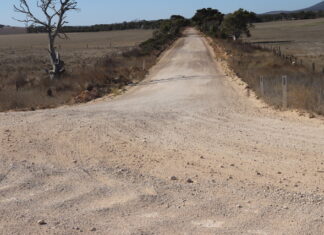Dear editor,
With the alarm bells ringing over the declining basic literacy and numeracy standards of our students, perhaps it is well and truly time for our education departments to admit there is a problem, identify what is causing it and introduce programs to arrest this serious decline.
Last week, it was the dumbing down of the police entry tests, and now we read ‘Trainee teachers fail on literacy’ (The Advertiser, 7 October) supplying us with further confirmation and evidence of this worrying and alarming trend.
Over the years, some new teaching methodologies have been introduced, which have superseded tried-and-true approaches to retaining and developing basic literacy and numeracy skills, which can be directly correlated to this growing decline
Initially used in the 1960s, the highly successful phonics-based approach to spelling and reading was replaced by the whole-word strategy, ignoring the fact that phonics was an essential foundation in the early stages of learning to read and spell.
Thankfully, in 2018, the phonics-based approach was reintroduced into SA schools, with results showing that there have been clear improvements.
In maths, numeracy skills have been in decline since new ways, such as understanding multiplication through modeling, grouping and arrays rather than rote learning, have been introduced, despite the high level of automaticity that rote learning of times tables had successfully provided for decades.
Perhaps it is time to reintroduce the rote learning of times tables, so that our students are able to develop higher levels of mathematical understanding.
Whilst I acknowledge and admire the range of skills today’s students have – technology, problem-solving, critical thinking, communication, collaboration and creativity – when compared to my education in the 1960s to the 1970s, I despair at this yearly fall in basic literacy and numeracy skills.
The adage of ‘if it’s not broke, don’t fix it’, certainly applies to the teaching of our students’ basic skills.
Ian Macgowan, Ceduna
Be prepared for summer
Dear editor,
Summer is almost upon us. Across the country, we are beginning to notice the temperature getting warmer, the days getting longer and even the Christmas decorations starting to be put up at the shops.
However, summer also brings a higher risk to our weather season in Australia, with the summer season responsible for some of the most damaging natural disasters that we see throughout the year, like extreme heat waves, bushfires, floods, cyclones, drought and more.
The Salvation Army wants to remind Aussies to not be alarmed, but to be prepared of the potential risks that this season can bring.
A few simple, practical steps can get you, your family and your home ready for whatever this season will throw at you.
This could be preparing a ‘go bag’ with key personal documents, or having cash and three days of supplies spare in case a disaster affects ATM/EFTPOS machines – applying these tips will leave you in good stead as we enter this higher risk season.
And as you prepare for this summer, we also encourage you to look out for one another.
Check in with your friends and neighbours to see if they are prepared or need support heading into this disaster season.
Natural disasters are a major source of stress and trauma for many who experience it, but knowing that there are people checking in on you can make a huge difference.
The Salvos have a long history with natural disasters. For over 130 years, we have been there for the long haul helping those impacted by natural disasters around the country.
Right now, our Salvation Army Emergency Services (SAES) teams are stationed at locations across the country, ready to spring into action if a disaster strikes and provide practical support (like meals and refreshments) and emotional support to anyone impacted.
The Salvos have developed a number of resources to help you prepare for a natural disaster this year.
To see these resources, or to find out more about the work of the SAES, visit salvationarmy.org.au/emergency-services
Bindy Lupis, Salvation Army Emergency Services








